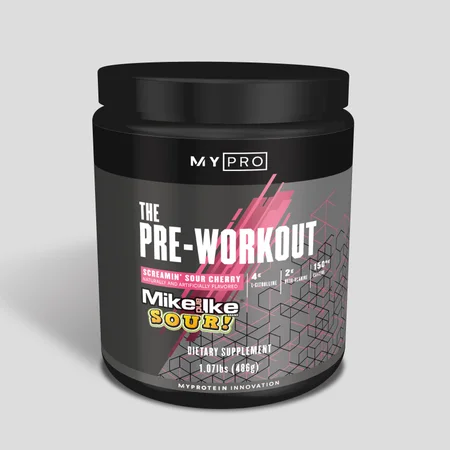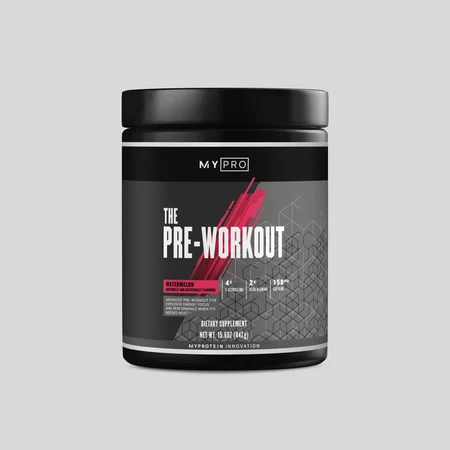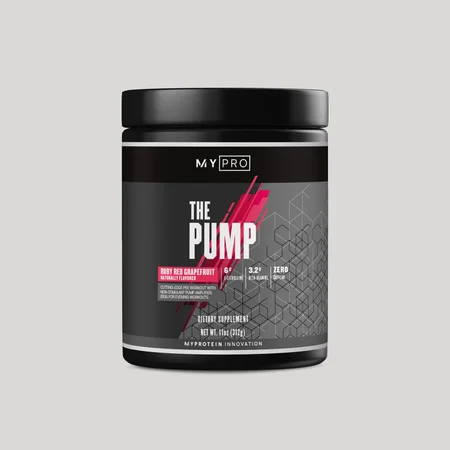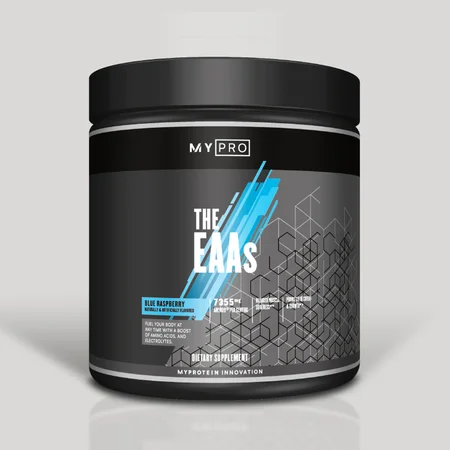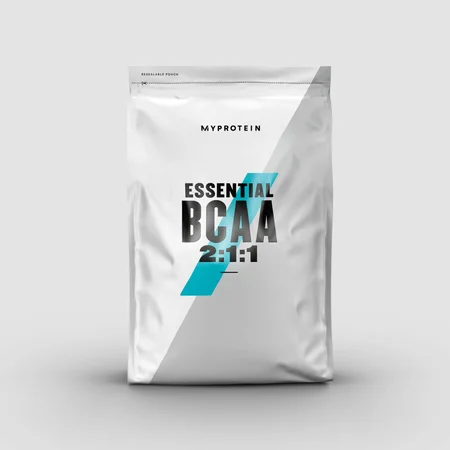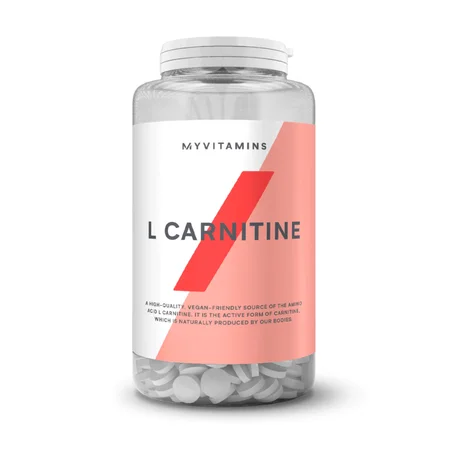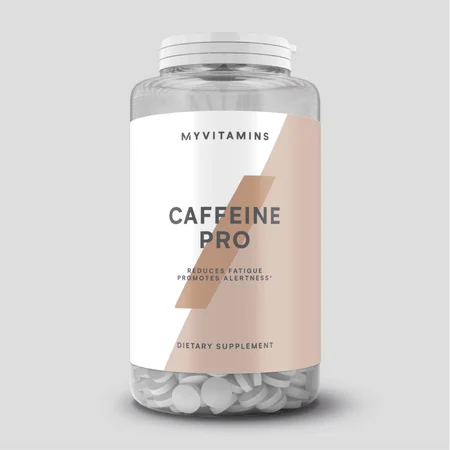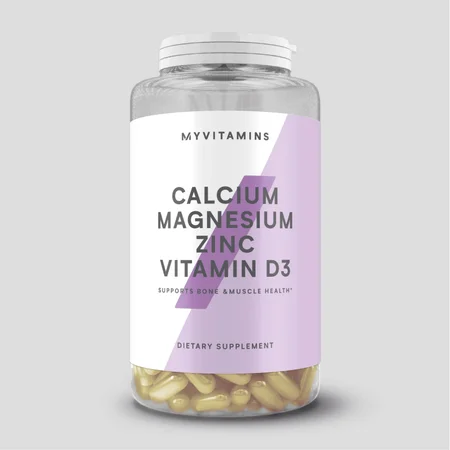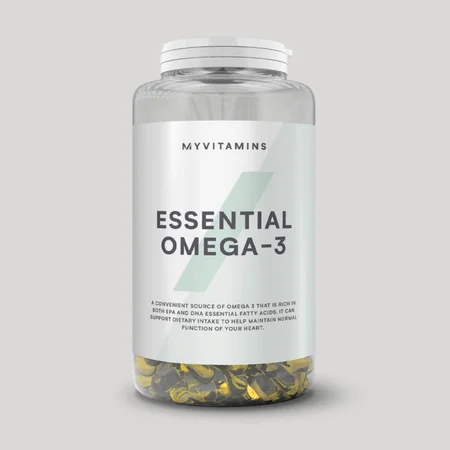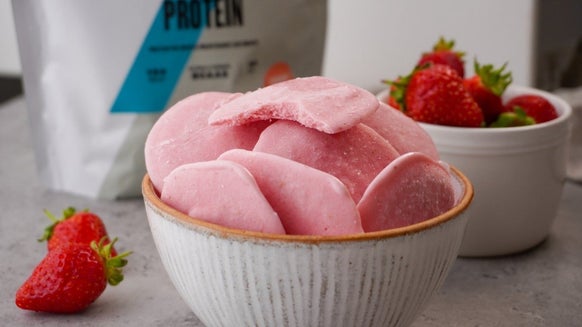
The world of sports nutrition can be a minefield to navigate. So, let’s break down the science-backed supplements that can support endurance training so that you know what’s worth a place in your stack.
- What Are Supplements?
- Pre-Workout Supplements
- Intra-Workout Supplements
- Post-Workout Supplements
- Electrolytes: Maintaining Hydration and Performance
- Branched-Chain Amino Acids (BCAAs): Reducing Muscle Soreness
- Beta-Alanine: Enhancing Stamina and Delaying Fatigue
- L-Carnitine: Boosting Energy and Fat Metabolism
- Nitric Oxide Boosters: Improving Blood Flow and Oxygen Delivery
- Caffeine: Enhancing Focus and Reducing Perceived Effort
- Adaptogens: Managing Stress and Enhancing Endurance
- Joint Support Supplements: Protecting Against Overuse Injuries
- Sleep and Recovery Aids: Ensuring Optimal Rest and Recovery
- Vitamins and Minerals: Essential Micronutrients for Endurance
- Safety and Efficacy: Choosing the Right Supplements for Endurance Athletes
- Practical Tips: Integrating Supplements Into Your Training Routine

What Are Supplements? A Quick Overview
Supplements are products designed to enhance a diet, providing nutrients that may be otherwise difficult to get. They may contain an isolated vitamin or mineral (vitamin D supplements are popular in winter months), or they may contain a blend of nutrients, like a multivitamin or specially designed sports supplements.
Pre-Workout Supplements: Fuelling Your Endurance
Certain supplements can enhance alertness and focus, and hence performance in endurance sessions.
Pre-workout powder
Pre-workout blends often contain caffeine, which has been shown to improve endurance capacity. A 2016 study found that caffeine can improve sprint performance, and more recent evidence has suggested that caffeine can improve performance and strength through other mechanisms, such as reducing the feeling of pain, enabling you to push harder.1,2,3,4,5,6
Caffeine can also reduce the use of carbohydrates during exercise, which can increase endurance capacity.7,8
Creatine
Creatine, a compound made within the body, is found naturally in muscles.9
Creatine helps generate ATP, the energy used for explosive movements like sprinting and weightlifting.
Citrulline malate
Citrulline malate is a supplement that may support high-intensity exercise by improving oxygen uptake and ATP generation.10,11
You can take citrulline malate as a powder pre-workout or at any time of the day.
Stim-free pre-workout
Tolerance to caffeine varies from person to person. So, for those who like to avoid caffeine, a stimulant-free pre-workout supplement can enhance alertness and performance.
One study showed that consumption of a non-caffeinated pre-workout supplement had a similar effect on lifting power as a caffeinated powder.12
Intra-Workout Supplements: Staying Strong During Long Sessions
Intra-workout supplements can be particularly helpful for endurance sessions lasting longer than 60 minutes, topping up glycogen stores during exercise and preventing fatigue from setting in.
Intra-workout blend
An intra-workout blend provides a concentrated source of carbohydrates, protein to help to reduce muscle breakdown, and electrolytes to prevent dehydration, which can also impact performance.
Energy gels
Energy gels provide quick carbohydrates, making them a convenient choice for longer workouts. They're often made with two different sources of carbohydrates, like maltodextrin and fructose, which increase uptake and help maintain performance.13
EAAs
EAAs are essential amino acids that the body cannot produce and must be obtained from food.
They are required to stimulate muscle protein synthesis (MPS), the process of muscle growth and repair.14 EAA supplements may even be more effective than regular protein supplements as the amino acids can be absorbed quicker.16
Post-Workout Supplements: Speeding Up Recovery
Repairing muscles, replenishing glycogen stores, and rehydration are the main goals of post-workout supplements.
Protein powder
Research has shown that a minimum of 0.25g of high-quality protein per kg of body weight (2.2lb) or an absolute dose of 20-40g of protein is required to maximally stimulate muscle protein synthesis in the hours post-workout.17
A single serving of Impact Whey Protein provides 22g of protein, perfect for kickstarting the muscle-building process.
Layered Bar
Once depleted, glycogen stores can take longer than 48 hours to become fully replenished, which can affect performance in subsequent sessions.18
Layered Bars are the perfect post-workout snack, providing 20g of protein as well as 19g of carbohydrates, replenishing glycogen stores so you're ready for your next session.
Electrolytes: Maintaining Hydration and Performance
Electrolytes, the salts and minerals such as potassium and sodium present in blood, play an essential role in different bodily functions, including muscle contractions, fluid levels, and nerve signals.21
Electrolytes are lost through sweat and other bodily fluids. Dehydration can lead to electrolyte imbalances, which can cause symptoms such as cramps, confusion, headaches, and dizziness, as well as more severe consequences in extreme cases.22,23
A recent, but small, study found that when an electrolyte solution was consumed during endurance exercise, it resulted in quicker times during a time trial in comparison to normal water.24
Researchers also found that fluid retention was higher with the electrolyte solution in comparison to water, which may have influenced the results of the time trial because it helped to offset the negative effects of dehydration.
Hydrate sachets
Hydrate stick packs provide electrolytes like magnesium, potassium, and sodium to support re-hydration, maintaining hydration during workouts.
Branched-Chain Amino Acids (BCAAs): Reducing Muscle Soreness
Leucine, isoleucine and valine are the three branched chain amino acids. These are the three essential amino acids most important for building muscle.25 Their unique structure is what gives them their name.
When it comes to muscle building, the rate of muscle protein synthesis needs to be higher than the rate of muscle protein breakdown. A BCAA supplement may help to increase overall intake of amino acids, which can in turn promote muscle growth.
One study found a 22% greater increase in muscle protein synthesis with BCAA supplementation in comparison to a placebo.26
Because BCAAs can promote muscle growth and repair, it is thought they can reduce delayed onset muscle soreness, or DOMS. A recent meta-analysis of studies identified that 7 out of 10 studies demonstrated a reduction in DOMS in trained individuals.27
The results seen in studies where BCAAs do reduce muscle soreness may be attributable to the fact that the consumption of protein before a workout can increase the amount of amino acids in the amino acid pool within the muscles, which can help to reduce the amount of muscle protein breakdown throughout a session.
In a calorie deficit, there’s a greater risk of muscle loss as weight loss is rarely purely fat loss. A recent study demonstrated that BCAA supplementation in individuals who resistance trained and who were in a calorie deficit helped to preserve lean muscle mass and performance while losing fat mass.28
Similar results were seen in another study investigating the impact of BCAA supplementation in wrestlers in a calorie deficit.29
BCAAs can typically be purchased in powder or tablet form.
Beta-Alanine: Enhancing Stamina and Delaying Fatigue
Beta-alanine is a non-essential amino acid that produces carnosine, which helps to reduce the build-up of lactic acid in your muscles during training, improving muscle endurance during high-intensity exercise.
Beta Alanine Powder is an unflavoured supplement that can be added to your pre-workout shake.
L-Carnitine: Boosting Energy and Fat Metabolism
L-carnitine is an amino acid that the body produces, but it can also be found in supplement form. It plays an important role in the production of energy as it supports the transport of fatty acids into the cells.30
L-carnitine can support exercise performance through various mechanisms such as increasing oxygen supply to muscles, improving blood flow, and enhancing exercise recovery, which can impact performance in subsequent sessions.31,32
You can purchase L-carnitine as a liquid capsule or as a powder.
Nitric Oxide Boosters: Improving Blood Flow and Oxygen Delivery
Nitric oxide is naturally produced within the body and acts as a vasodilator, meaning it causes the blood vessels to widen, increasing blood flow and lowering blood pressure.
Supplements such as L-citrulline and L-arginine have been shown to increase nitric oxide, which can improve endurance performance.33,34
Pump-enhancer capsules provide L-arginine and citrulline malate among other ingredients to help increase nitric oxide and support performance pre-workout.
Caffeine: Enhancing Focus and Reducing Perceived Effort
Recent evidence has suggested that caffeine can improve performance and strength through mechanisms other than those commonly known, such as improving muscle soreness.35,36
Caffeine can reduce the use of carbohydrates during exercise, which can further increase endurance capacity.37,38
A recent study found that 6mg of caffeine per kg of body weight (2.2lb) post-exercise can reduce DOMS in both male and female athletes.35 Similar results were seen in an older study during which 5 mg of caffeine per kg of body weight taken one hour before exercise and within 24 hours after exercise significantly reduced DOMS on days two and three in comparison to a group who did not take any caffeine.36
Adaptogens: Managing Stress and Enhancing Endurance
Adaptogens are supplements that can help the body to adapt and cope with stress.
Ashwagandha is a commonly used adaptogen, known for its ability to combat stress and anxiety. Ashwagandha seems to interact with the mediators of stress, such as cortisol, and acts on the hypothalamic-pituitary-adrenal axis, known as the HPA axis, which regulates the stress response.
Studies have shown that ashwagandha helps to reduce morning cortisol levels and can reduce HPA axis activity in stressed individuals.39
A meta-analysis of randomized control trials found that Ashwagandha supplementation reduced anxiety and stress levels compared to placebo and found that dosages between 300mg to 600mg per day can be beneficial for stress levels.40
Joint Support Supplements: Protecting Against Overuse Injuries
Calcium and magnesium
Calcium is vital for bone formation, but also plays a key role in muscle contractions and nerve functioning. Almost all the calcium in the body is stored in our bones and teeth, but we also require a small amount of calcium in our blood stream for daily functions.
Calcium is found in dairy products and canned fish, but there are some plant-based sources of calcium, like sesame seeds and tahini, almonds, green leafy vegetables, and fortified white flour and bread.
Calcium isn’t a very bioavailable nutrient, meaning that not all of it is absorbed, which is why a supplement can be helpful to support overall requirements.
Magnesium is also involved in muscle contractions and nerve functions, but it helps to regulate calcium metabolism too, which makes it important to support bone health.
Vitamin D
Vitamin D enhances the absorption of calcium, which in turn helps to support our bones. Vitamin D softgels are a convenient way to ensure you’re getting your vitamin D throughout the winter months.
Vitamin K
Vitamin K, found in broccoli, spinach, and vegetable oils, is important for blood clotting and plays an important role in bone health.
It helps to regulate bone resorption and formation (41), and low levels of vitamin K are associated with reduced bone density.41,42
The recommendation for vitamin K is 1 microgram (μg) per kg (2.2lb) body weight. Vitamin K Tablets provide 100ug.
Glucosamine chondroitin capsules
Glucosamine and chondroitin are naturally found in the body and support the joints and cartilage.43
Over time, cartilage can deteriorate. People whose joints take a lot of impact, such as those who lead active lifestyles, may begin to feel the effects of this as they age.44
Shellfish is the main dietary source of glucosamine, so glucosamine chondroitin capsules are a convenient way to keep glucosamine and chondroitin levels high.
Sleep and Recovery Aids: Ensuring Optimal Rest and Recovery
Omega-3 supplements
Omega-3 fatty acids help to regulate inflammation in the body.
Multiple studies have shown that they can improve DOMS. One study found that 3000mg of omega-3 supplements per day reduced muscle stiffness.45 Another found that when omega-3 fatty acids were consumed post-exercise, it resulted in reduced pain in the 48 hours following exercise.46
There are 3 main categories of omega-3s: ALA, EPA, and DHA.
ALA is the most common type of omega-3 that we consume as it is found in plant-based foods like walnuts, chia seeds, and olive oil.
ALA needs to be converted into EPA or DHA in the body for it to be used for the benefits associated with omega-3s, like improving cholesterol levels, enhancing brain function, and reducing inflammation.
Unfortunately, the body is not very efficient at this process, which means only a very small amount of EPA or DHA is gained from conversion.
This is why it's encouraged to consume oily fish in our diets at least once per week, as oily fish is rich in EPA and DHA omega-3 fatty acids. If you struggle to get it from these sources, supplements can be a good alternative.
Ashwagandha gummies
Ashwagandha can promote restful sleep and even improve sleep in those who have sleep issues such as insomnia. A review conducted in 2021 of five high-quality studies found that ashwagandha has a small but significant effect on overall sleep quality, with the effects on sleep being more prominent in the subgroup of adults diagnosed with insomnia.47
Vitamins and Minerals: Essential Micronutrients for Endurance
Vitamin B12
A deficiency in vitamin B12 is associated with fatigue, difficulty concentrating, and a decrease in endurance for athletes, as the body’s oxygen capacity is limited when the body does not produce enough red blood cells.48
Vitamin C
Exercise can cause increased levels of oxidative stress, which produces free radicals, and can cause inflammation, which may contribute to impaired muscle repair and performance in subsequent sessions.
Antioxidants are molecules found in fruit and vegetables that can help to protect against damage caused by free radicals.
Vitamins C is considered an antioxidant and helps to regulate oxidative stress and inflammation in the body. It can also support immunity, keeping you well so that you can continue to train and perform.
Safety and Efficacy: Choosing the Right Supplements for Endurance Athletes
According to the International Society of Sports Nutrition, there is sufficient evidence to say that creatine, protein powder, and caffeine each support performance and muscle building.49
Many other supplements may also help support these goals, depending on diet, training, and lifestyle. For tailored recommendations on what supplements to take, speak to a registered sports dietitian or nutritionist.
Practical Tips: Integrating Supplements Into Your Training Routine
Some supplements should be taken at certain times for optimal benefits. For instance, pre-workout powder should be taken prior to your session.
However, for other supplements like vitamins, creatine, and omega-3, it doesn’t matter when you take them and so you can integrate them into your daily routine wherever it is most convenient for you.
Leaving your supplements out in view can act as a helpful reminder to take them, or adding them to an already established habit, such as making up your post-workout protein shake, can help to improve consistency with taking supplements.
Take Home Message
Supplements can be super useful to enhance performance and recovery in endurance athletes, but it’s important to remember that they are intended to supplement a diet and are not a magic fix.
But if your sleep, nutrition, and training are already on point, a supplement could be the extra boost you need to reach your goals.
FIND MORE SUPPLEMENT PIECES HERE:

The Complete Guide To Protein Powders For Beginners
Match your protein to your training....

What Are BCAAs & Their Benefits?
How could BCAAs help you reach your goals?...

- Trexler, E. T., Smith-Ryan, A. E., Roelofs, E. J., Hirsch, K. R., & Mock, M. G. (2016). Effects of coffee and caffeine anhydrous on strength and sprint performance. European journal of sport science, 16(6), 702-710.
- Astorino, T. A., Terzi, M. N., Roberson, D. W., & Burnett, T. R. (2011). Effect of caffeine intake on pain perception during high-intensity exercise. International journal of sport nutrition and exercise metabolism, 21(1), 27-32
- Cappelletti, S., Daria, P., Sani, G., & Aromatario, M. (2015). Caffeine: cognitive and physical performance enhancer or psychoactive drug? Current neuropharmacology, 13(1), 71-88.
- Grgic, J., & Mikulic, P. (2017). Caffeine ingestion acutely enhances muscular strength and power but not muscular endurance in resistance-trained men. European journal of sport science, 17(8), 1029-1036.
- Kim, J., & Lee, J. (2014). A review of nutritional intervention on delayed onset muscle soreness. Part I. Journal of exercise rehabilitation, 10(6), 349.
- Baratloo, A., Rouhipour, A., Forouzanfar, M. M., Safari, S., Amiri, M., & Negida, A. (2016). The role of caffeine in pain management: a brief literature review. Anesthesiology and pain medicine, 6(3).
- Graham, T. E., Battram, D. S., Dela, F., El-Sohemy, A., & Thong, F. S. (2008). Does caffeine alter muscle carbohydrate and fat metabolism during exercise? Applied Physiology, Nutrition, and Metabolism, 33(6), 1311-1318.
- Laurent, D., Schneider, K. E., Prusaczyk, W. K., Franklin, C., Vogel, S. M., Krssak, M., …& Shulman, G. I. (2000). Effects of caffeine on muscle glycogen utilization and the neuroendocrine axis during exercise. The Journal of Clinical Endocrinology & Metabolism, 85(6), 2170-2175.
- Sahlin, K., & Harris, R. C. (2011). The creatine kinase reaction: a simple reaction with functional complexity. Amino acids, 40(5), 1363-1367.
- Bailey, S. J., Blackwell, J. R., Lord, T., Vanhatalo, A., Winyard, P. G., & Jones, A. M. (2015). l-Citrulline supplementation improves O2 uptake kinetics and high-intensity exercise performance in humans. Journal of applied physiology (Bethesda, Md.: 1985), 119(4), 385–395. https://doi.org/10.1152/japplphysiol.00192.2014
- Gough, L. A., Sparks, S. A., McNaughton, L. R., Higgins, M. F., Newbury, J. W., Trexler, E., Faghy, M. A., & Bridge, C. A. (2021). A critical review of citrulline malate supplementation and exercise performance. European journal of applied physiology, 121(12), 3283–3295. https://doi.org/10.1007/s00421-021-04774-6
- Stratton, M. T., Siedler, M. R., Harty, P. S., Rodriguez, C., Boykin, J. R., Green, J. J. J., Keith, D. S., White, S. J., DeHaven, B., Williams, A. D., & Tinsley, G. M. (2022). The influence of caffeinated and non-caffeinated multi-ingredient pre-workout supplements on resistance exercise performance and subjective outcomes. Journal of the International Society of Sports Nutrition, 19(1), 126–149. https://doi.org/10.1080/15502783.2022.2060048
- Oliver, J. M., Almada, A. L., Van Eck, L. E., Shah, M., Mitchell, J. B., Jones, M. T., … & Rowlands, D. S. (2016). Ingestion of high molecular weight carbohydrate enhances subsequent repeated maximal power: a randomized controlled trial. PLoS One, 11(9), e0163009.
- Lukaszuk, J., Stark, M., Prawitz, A., & Salacinski, A. (2012). Protein timing and its effects on muscular hypertrophy and strength in individuals engaged in weight-training.
- Katsanos, C. S., Chinkes, D. L., Paddon-Jones, D., Zhang, X. J., Aarsland, A., & Wolfe, R. R. (2008). Whey protein ingestion in elderly persons results in greater muscle protein accrual than ingestion of its constituent essential amino acid content. Nutrition research, 28(10), 651-658.
- Weijzen, M. E. G., van Gassel, R. J. J., Kouw, I. W. K., Trommelen, J., Gorissen, S. H. M., van Kranenburg, J., Goessens, J. P. B., van de Poll, M. C. G., Verdijk, L. B., & van Loon, L. J. C. (2022). Ingestion of Free Amino Acids Compared with an Equivalent Amount of Intact Protein Results in More Rapid Amino Acid Absorption and Greater Postprandial Plasma Amino Acid Availability Without Affecting Muscle Protein Synthesis Rates in Young Adults in a Double-Blind Randomized Trial. The Journal of nutrition, 152(1), 59–67. https://doi.org/10.1093/jn/nxab305
- Poortmans, J. R., Carpentier, A., Pereira-Lancha, L. O., & Lancha Jr, A. (2012). Protein turnover, amino acid requirements and recommendations for athletes and active populations. Brazilian Journal of Medical and Biological Research, 45, 875-890.
- Ivy, J. L. (2004). Regulation of muscle glycogen repletion, muscle protein synthesis and repair following exercise. Journal of sports science & medicine, 3(3), 131.
- Cooke, M. B., Rybalka, E., Williams, A. D., Cribb, P. J., & Hayes, A. (2009). Creatine supplementation enhances muscle force recovery after eccentrically-induced muscle damage in healthy individuals. Journal of the International Society of Sports Nutrition, 6(1), 13
- Nelson, A. G., Arnall, D. A., Kokkonen, J. O. K. E., Day, Randy., & Evans, Jared. (2001). Muscle glycogen supercompensation is enhanced by prior creatine supplementation. Medicine and science in sports and exercise, 33(7), 1096-1100.
- Shrimanker, I., & Bhattarai, S. (2019). Electrolytes.
- Hew-Butler, T., Smith-Hale, V. G., & Sabou, J. (2019). Exercise-associated electrolyte disorders. Current Opinion in Endocrine and Metabolic Research, 9, 51-55.
- Sawka, M. N., & Montain, S. J. (2000). Fluid and electrolyte supplementation for exercise heat stress. The American journal of clinical nutrition, 72(2), 564S-572S.
- Fan, P. W., Burns, S. F., & Lee, J. K. W. (2020). Efficacy of ingesting an oral rehydration solution after exercise on fluid balance and endurance performance. Nutrients, 12(12), 3826.
- Kamal Patel. (2022). Branched-Chain Amino Acids. Retrieved from; https://examine.com/supplements/branched-chain-amino-acids/research/#sources-and-composition-1_aQNnNQq-formulations-and-variants-1
- Jackman, S. R., Witard, O. C., Philp, A., Wallis, G. A., Baar, K., & Tipton, K. D. (2017). Branched-Chain Amino Acid Ingestion Stimulates Muscle Myofibrillar Protein Synthesis following Resistance Exercise in Humans. Frontiers in physiology, 8, 390. https://doi.org/10.3389/fphys.2017.00390
- Weber, M. G., Dias, S. S., de Angelis, T. R., Fernandes, E. V., Bernardes, A. G., Milanez, V. F., … & de Paula Ramos, S. (2021). The use of BCAA to decrease delayed-onset muscle soreness after a single bout of exercise: a systematic review and meta-analysis. Amino acids, 53(11), 1663-1678.
- Dudgeon, W. D., Kelley, E. P., & Scheett, T. P. (2016). In a single-blind, matched group design: branched-chain amino acid supplementation and resistance training maintains lean body mass during a caloric restricted diet. Journal of the International Society of Sports Nutrition, 13(1), 1.
- Mourier, A., Gautier, J. F., Kerviler, E. D., Bigard, A. X., Villette, J. M., Garnier, J. P., … & Cathelineau, G. (1997). Mobilization of visceral adipose tissue related to the improvement in insulin sensitivity in response to physical training in NIDDM: effects of branched-chain amino acid supplements. Diabetes care, 20(3), 385-391.
- Virmani, M. A., & Cirulli, M. (2022). The Role of l-Carnitine in Mitochondria, Prevention of Metabolic Inflexibility and Disease Initiation. International journal of molecular sciences, 23(5), 2717. https://doi.org/10.3390/ijms23052717
- Spiering, B. A., Kraemer, W. J., Hatfield, D. L., Vingren, J. L., Fragala, M. S., Ho, J. Y., Thomas, G. A., Häkkinen, K., & Volek, J. S. (2008). Effects of L-carnitine L-tartrate supplementation on muscle oxygenation responses to resistance exercise. Journal of strength and conditioning research, 22(4), 1130–1135. https://doi.org/10.1519/JSC.0b013e31817d48d9
- Stefan, M., Sharp, M., Gheith, R., Lowery, R., Ottinger, C., Wilson, J., Durkee, S., & Bellamine, A. (2021). L-Carnitine Tartrate Supplementation for 5 Weeks Improves Exercise Recovery in Men and Women: A Randomized, Double-Blind, Placebo-Controlled Trial. Nutrients, 13(10), 3432. https://doi.org/10.3390/nu13103432
- Gao, C., Gupta, S., Adli, T., Hou, W., Coolsaet, R., Hayes, A., Kim, K., Pandey, A., Gordon, J., Chahil, G., Belley-Cote, E. P., & Whitlock, R. P. (2021). The effects of dietary nitrate supplementation on endurance exercise performance and cardiorespiratory measures in healthy adults: a systematic review and meta-analysis. Journal of the International Society of Sports Nutrition, 18(1), 55. https://doi.org/10.1186/s12970-021-00450-4
- Hoon, M. W., Johnson, N. A., Chapman, P. G., & Burke, L. M. (2013). The effect of nitrate supplementation on exercise performance in healthy individuals: a systematic review and meta-analysis. International journal of sport nutrition and exercise metabolism, 23(5), 522–532. https://doi.org/10.1123/ijsnem.23.5.522
- Chen, H. Y., Chen, Y. C., Tung, K., Chao, H. H., & Wang, H. S. (2019). Effects of caffeine and sex on muscle performance and delayed-onset muscle soreness after exercise-induced muscle damage: a double-blind randomized trial. Journal of applied physiology (Bethesda, Md.: 1985), 127(3), 798–805. https://doi.org/10.1152/japplphysiol.01108.2018
- Hurley, C. F., Hatfield, D. L., & Riebe, D. A. (2013). The effect of caffeine ingestion on delayed onset muscle soreness. The Journal of Strength & Conditioning Research, 27(11), 3101-3109.
- Graham, T. E., Battram, D. S., Dela, F., El-Sohemy, A., & Thong, F. S. (2008). Does caffeine alter muscle carbohydrate and fat metabolism during exercise? Applied Physiology, Nutrition, and Metabolism, 33(6), 1311-1318.
- Laurent, D., Schneider, K. E., Prusaczyk, W. K., Franklin, C., Vogel, S. M., Krssak, M., … & Shulman, G. I. (2000). Effects of caffeine on muscle glycogen utilization and the neuroendocrine axis during exercise. The Journal of Clinical Endocrinology & Metabolism, 85(6), 2170-2175.
- Lopresti, A. L., Smith, S. J., Malvi, H., & Kodgule, R. (2019). An investigation into the stress-relieving and pharmacological actions of an ashwagandha (Withania somnifera) extract: A randomized, double-blind, placebo-controlled study. Medicine, 98(37), e17186.
- Akhgarjand, C., Asoudeh, F., Bagheri, A., Kalantar, Z., Vahabi, Z., Shab‐bidar, S., … & Djafarian, K. (2022). Does Ashwagandha supplementation have a beneficial effect on the management of anxiety and stress? A systematic review and meta‐analysis of randomized controlled trials. Phytotherapy Research, 36(11), 4115-4124.
- Rodríguez-Olleros Rodríguez, C., & Díaz Curiel, M. (2019). Vitamin K and Bone Health: A Review on the Effects of Vitamin K Deficiency and Supplementation and the Effect of Non-Vitamin K Antagonist Oral Anticoagulants on Different Bone Parameters. Journal of osteoporosis, 2019, 2069176. https://doi.org/10.1155/2019/2069176
- Tsugawa N, Shiraki M. Vitamin K Nutrition and Bone Health. Nutrients. 2020;12(7):1909. Published 2020 Jun 27. doi:10.3390/nu12071909
- Cui, P., Li, M., Yu, M., Liu, Y., Ding, Y., Liu, W., & Liu, J. (2022). Advances in sports food: Sports nutrition, food manufacture, opportunities and challenges. Food Research International, 157, 111258.
- Marina, G. D. S., Ramu, D., Reddy, E. H., Billa, R., Kumar, N. S., & Swathi, B. (2022). Efficacy of Oral Glucosamine Sulphate and Sulfasalazine combination in the treatment of Osteoarthritis. Research Journal of Pharmacy and Technology, 15(9), 4208-4211.
- Corder, K. E., Newsham, K. R., McDaniel, J. L., Ezekiel, U. R., & Weiss, E. P. (2016). Effects of short-term docosahexaenoic acid supplementation on markers of inflammation after eccentric strength exercise in women. Journal of sports science & medicine, 15(1), 176.
- Tartibian, B., Maleki, B. H., & Abbasi, A. (2011). Omega-3 fatty acids supplementation attenuates inflammatory markers after eccentric exercise in untrained men. Clinical Journal of Sport Medicine, 21(2), 131-137.
- Cheah, K. L., Norhayati, M. N., Yaacob, L. H., & Rahman, R. A. (2021). Effect of Ashwagandha (Withania somnifera) extract on sleep: A systematic review and meta-analysis. PloS one, 16(9), e0257843
- Krzywański, J., Mikulski, T., Pokrywka, A., Młyńczak, M., Krysztofiak, H., Frączek, B., & Ziemba, A. (2020). Vitamin B12 status and optimal range for hemoglobin formation in elite athletes. Nutrients, 12(4), 1038.
- Kerksick, C.M., Wilborn, C.D., Roberts, M.D. et al. ISSN exercise & sports nutrition review update: research & recommendations. J Int Soc Sports Nutr 15, 38 (2018). https://doi.org/10.1186/s12970-018-0242-y
